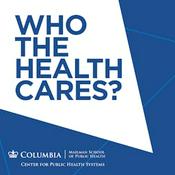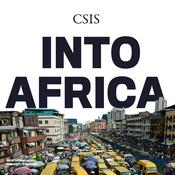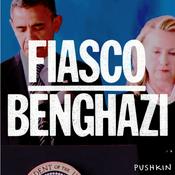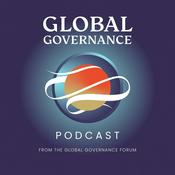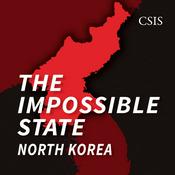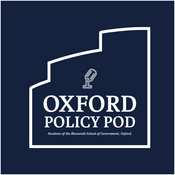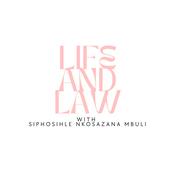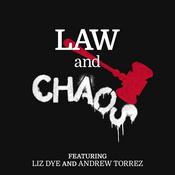101 episodes
- The 2024 election delivered an unusually fragmented opposition; almost half the non-government seats in the House of Commons were won by parties other than the Conservative 'Official Opposition'. Given current polling, the next general election is unlikely to see a return to simple 'two-party' politics.
In that context, does the Commons need to change its culture, practices, or procedures to better reflect an era of more fragmented politics? What particular challenges face smaller parties in the Commons? How can they maximise their impact? We discussed these questions with the Green Party's Westminster leader, a former senior Commons official, and an academic expert.
Speakers:
Dr Ellie Chowns MP – Green Party Westminster Leader and MP for North Herefordshire
Paul Evans – former House of Commons clerk
Dr Louise Thompson – Senior Lecturer in Politics, University of Manchester
Chair: Professor Meg Russell – Director of the Constitution Unit
Links:
Website: www.ucl.ac.uk/constitution-unit
Mailing list: www.ucl.ac.uk/constitution-unit/get-involved/mailing-list
Blog: constitution-unit.com - The UK awards hundreds of honours each year to mark notable achievements and contributions to society. These awards – such as knighthoods, damehoods, and OBEs – can be a source of pride and a cause of controversy. So how are people chosen for these honours? How does the system work behind the scenes? And could it be improved? Ahead of the New Year Honours, we’ll discuss these questions with an expert panel.
Speakers:
Dame Sue Owen – former member of the Arts and Media, Economy, and Sport Honours Committees and former Permanent Secretary at the Department for Culture, Media and Sport
Sir Peter Riddell – former member of the Parliamentary and Political Service Honours Committee, former Commissioner for Public Appointments, and Honorary Professor at UCL
Dominic Grieve KC – former Attorney General for England and Wales, and Conservative MP for Beaconsfield 1997–2019
Chair: Professor Meg Russell – Director of the Constitution Unit
Links:
Website: www.ucl.ac.uk/constitution-unit
Mailing list: www.ucl.ac.uk/constitution-unit/get-involved/mailing-list
Blog: constitution-unit.com - Please note that, in places, the microphones momentarily failed to record the proceedings at this event. We apologise.
In the UK, calls for the withdrawal from the European Convention of Human Rights are becoming louder and more persistent. The government has promised to look into the case for reform of the Convention, but at present there are no details about what this would look like. Yet, the discussions about the future of the ECHR are not limited to the UK. Across the Council of Europe many states are considering the case for renegotiation of current obligations under the Convention, particularly in the context of migration. In Denmark, the government is reviewing the practice of its courts and drafting a proposal for a new agreement that would amend the current text of the Convention and allow the government to limit its obligations in relation to particular groups of migrants. How are these developments at European level relevant for the discussion in the UK?
A panel of expert speakers familiar with the developments in Denmark, UK, and the Council of Europe speak about the pressures that human rights and especially the European Convention find themselves under and what the options are for states seeking a reform of the system.
Speakers:
Former Judge Robert Spano, Former President of European Court of Human Rights, Partner at Gibson Dunn
Professor Jens Elo Peters Rytter, Professor of Constitutional Law, University of Copenhagen
Professor Colm O’Cinneide, Professor of Constitutional and Human Rights Law, UCL
Professor Alice Donald, Professor in Human Rights Law, Middlesex University London
Chair: Professor Veronika Fikfak, Professor of Human Rights and International Law, UCL
Links:
Website: www.ucl.ac.uk/constitution-unit
Mailing list: www.ucl.ac.uk/constitution-unit/get-involved/mailing-list
Blog: constitution-unit.com - The UK government published an elections policy paper in the summer, including proposals for votes at 16, automated electoral registration, and strengthened political finance rules. With an Elections Bill expected in November, this panel will assess the government’s proposals and consider whether they will be sufficient to ensure electoral integrity. For example, are tighter rules needed on political donations? Should more be done to protect the independence of the Electoral Commission? Should requirements for truthfulness in political speech be strengthened?
Speakers:
Cat Smith MP – Labour MP for Lancaster and Wyre
Rose Whiffen – Senior Research Officer, Transparency International UK
Tom Hawthorn – Head of Policy, Electoral Commission
Professor David Howarth – Professor of Law and Public Policy, University of Cambridge, former UK Electoral Commissioner (2010–18), and former Liberal Democrat MP for Cambridge (2005–10)
Chair: Professor Alan Renwick – Deputy Director of the Constitution Unit
Links:
Website: www.ucl.ac.uk/constitution-unit
Mailing list: www.ucl.ac.uk/constitution-unit/get-involved/mailing-list
Blog: constitution-unit.com - Many of the highest-profile political issues – including trade, security, and immigration – are now shaped by international treaties and agreements. These agreements are negotiated by ministers and officials, and recent years have seen complaints that the UK’s parliaments lack the scrutiny tools they need. So why does parliamentary scrutiny of international agreements matter? Does the current system allow for adequate scrutiny? And if not, what needs to change?
Speakers:
Lord (Peter) Goldsmith KC – Chair of the House of Lords International Agreements Committee
Arabella Lang – Head of Public Law at the Law Society
Clare Adamson MSP – SNP MSP for Motherwell and Wishaw, and Convener of the Scottish Parliament’s Constitution, Europe, External Affairs and Culture Committee.
Chair: Lisa James – Senior Research Fellow, Constitution Unit
Further reading:
'Treaty scrutiny in Westminster: addressing the accountability gap' (House of Lords International Agreements Committee, 11 September 2025).
Links:
Website: www.ucl.ac.uk/constitution-unit
Mailing list: www.ucl.ac.uk/constitution-unit/get-involved/mailing-list
Blog: constitution-unit.com
More Government podcasts
Trending Government podcasts
About The Constitution Unit
The Constitution Unit conducts timely, rigorous, independent research into constitutional change and the reform of political institutions. Our research has significant real-world impact, informing policy-makers engaged in such changes - both in the United Kingdom and around the world.
On this channel, you will find the audio recordings of the Constitution Unit's past events.
Podcast websiteListen to The Constitution Unit, The Tara Palmeri Show and many other podcasts from around the world with the radio.net app

Get the free radio.net app
- Stations and podcasts to bookmark
- Stream via Wi-Fi or Bluetooth
- Supports Carplay & Android Auto
- Many other app features
Get the free radio.net app
- Stations and podcasts to bookmark
- Stream via Wi-Fi or Bluetooth
- Supports Carplay & Android Auto
- Many other app features


The Constitution Unit
Scan code,
download the app,
start listening.
download the app,
start listening.



